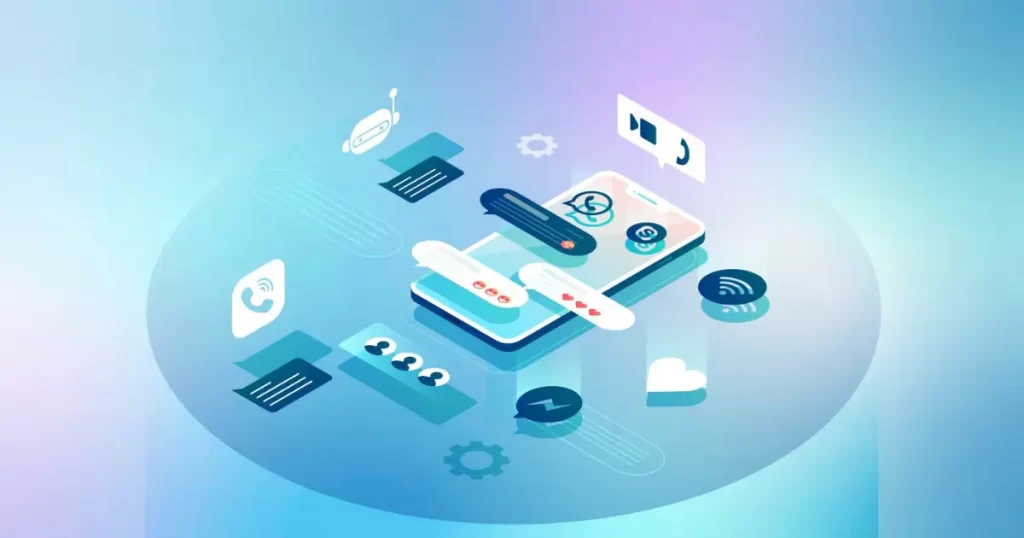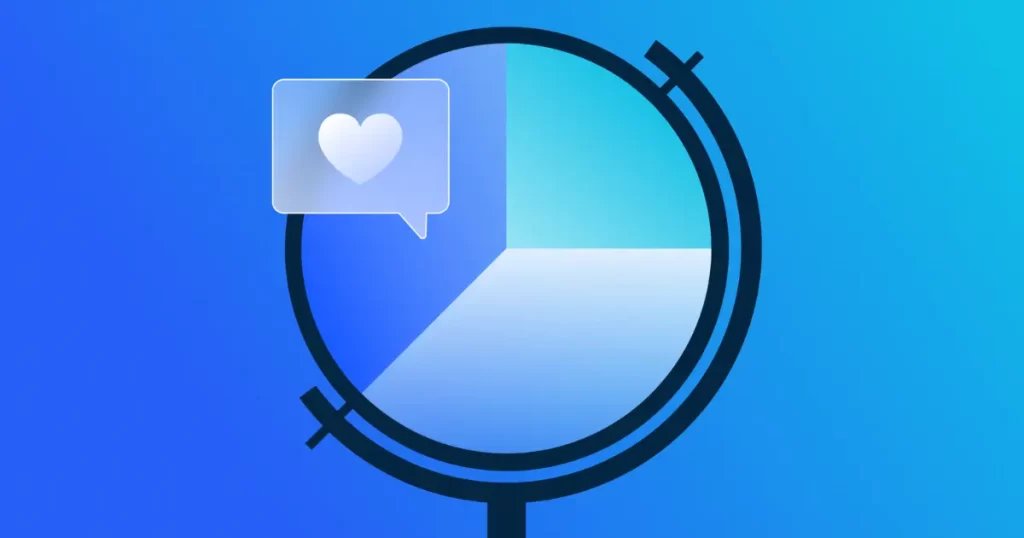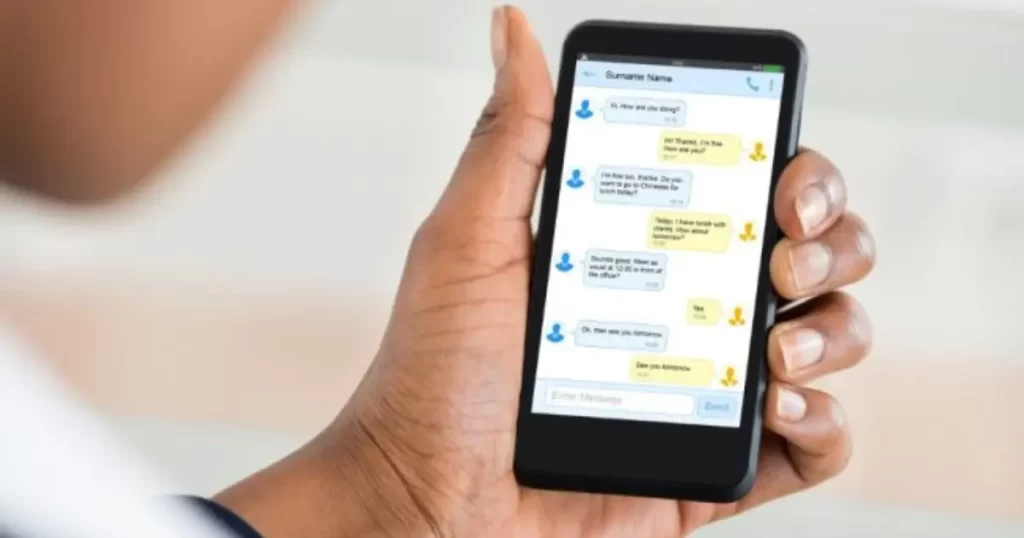In the ever-evolving landscape of digital communication, messaging apps have become the cornerstone of how we connect, communicate, and collaborate in both personal and professional spheres. Over the years, these apps have undergone significant transformations, from simple text-based platforms to multifaceted communication hubs offering a plethora of features and functionalities.
As we step into 2024, the trajectory of messaging apps continues to evolve, driven by technological advancements, changing user preferences, and emerging trends. In this comprehensive guide, we delve into the evolution of messaging apps, exploring the latest developments and innovations shaping the landscape in 2024.
The Emergence of Messaging Apps
Messaging apps have come a long way since the early days of SMS (Short Message Service), offering users a convenient and cost-effective way to exchange text messages over cellular networks. With the advent of smartphones and mobile internet, messaging apps witnessed a surge in popularity, providing users with richer communication experiences through features like multimedia messaging, group chats, and emoticons.
The Rise of Feature-Rich Platforms
As competition intensified, messaging app developers began integrating an array of features and functionalities into their platforms to differentiate themselves and attract users. Today, messaging apps have evolved into multifaceted platforms offering a wide range of services beyond basic text communication. From voice and video calling to file sharing, location sharing, and real-time collaboration, these apps have become all-encompassing communication hubs catering to diverse user needs.

Integration of AI and Chatbots
In 2024, one of the most significant trends shaping the messaging app landscape is the integration of artificial intelligence (AI) and chatbots. AI-powered chatbots are revolutionizing the way users interact with messaging platforms, offering personalized assistance, automated responses, and seamless integration with third-party services. From customer support and e-commerce to productivity and entertainment, chatbots are increasingly becoming integral components of messaging apps, enhancing user experiences and streamlining processes.
Enhanced Privacy and Security Features
With growing concerns over privacy and security in the digital realm, messaging app developers are placing greater emphasis on enhancing encryption protocols and implementing robust privacy features. End-to-end encryption, biometric authentication, and advanced privacy settings are becoming standard offerings in modern messaging apps, empowering users to communicate with confidence and peace of mind.
The Convergence of Messaging and Social Media
Another notable trend in 2024 is the convergence of messaging apps and social media platforms. As users seek seamless integration between their communication and social networking experiences, messaging apps are incorporating social features such as stories, status updates, and multimedia sharing to create more immersive and interconnected environments. This convergence blurs the lines between messaging and social media, enabling users to engage with their contacts in diverse ways within a single platform.
The Influence of Augmented Reality (AR) and Virtual Reality (VR)
The integration of augmented reality (AR) and virtual reality (VR) technologies is poised to redefine the future of messaging apps in 2024 and beyond. These immersive technologies offer new avenues for communication, allowing users to engage in virtual meetings, share augmented experiences, and express themselves in creative ways. Messaging apps leveraging AR and VR capabilities are unlocking innovative opportunities for social interaction, gaming, and multimedia sharing, paving the way for richer and more engaging user experiences.
The Role of Blockchain and Cryptocurrency
In the realm of messaging apps, blockchain technology and cryptocurrency are emerging as disruptive forces, offering solutions to traditional challenges such as security, privacy, and micropayments. Blockchain-based messaging platforms leverage decentralized architectures to ensure data integrity and privacy, while cryptocurrency integration facilitates secure and seamless transactions within messaging ecosystems. As blockchain and cryptocurrency adoption continues to grow, messaging apps are poised to embrace these technologies to enhance trust, transparency, and value exchange among users.

A Comparison of Leading Messaging Apps in 2024
| Feature | Telegram | Signal | Discord | |
| End-to-End Encryption | Yes | Optional | Yes | Optional |
| Voice and Video Calling | Yes | Yes | Yes | Yes |
| Group Chats | Up to 256 participants | Up to 200,000 members | Up to 1000 members | Up to 25 members |
| File Sharing | Yes | Up to 2GB per file | Yes, limited by platform | Yes, limited by platform |
| Self-Destructing Messages | Yes | Yes | Yes | No |
| Chatbot Integration | Yes | Yes | Limited | Limited |
| Social Features | Status updates, Stories | Channels, Groups | None | Communities, Servers |
| AR/VR Integration | Limited | No | No | Limited |
| Blockchain/Cryptocurrency | Limited | Yes | Yes | Yes |
Addressing Accessibility and Inclusivity
In 2024, messaging apps are increasingly focusing on accessibility and inclusivity to ensure that their platforms are usable and enjoyable for users of all abilities. Features such as screen reader compatibility, keyboard shortcuts, and customizable interfaces are becoming standard offerings, enabling individuals with disabilities to navigate and interact with messaging apps more effectively.
Moreover, language translation capabilities and localization efforts are making messaging platforms more accessible to users around the globe, breaking down language barriers and fostering cross-cultural communication and collaboration.
The Impact of Remote Work and Virtual Collaboration
The global shift towards remote work and virtual collaboration has had a profound impact on the evolution of messaging apps in 2024. With distributed teams and remote professionals relying heavily on digital communication tools, messaging platforms are prioritizing features that facilitate seamless collaboration, project management, and productivity.
Integration with project management tools, task lists, and collaborative document editing functionalities are increasingly common, empowering remote teams to stay connected and productive regardless of geographical barriers.
Monetization Strategies and Revenue Models
As messaging apps continue to evolve, monetization strategies and revenue models have become key considerations for developers and stakeholders. While many messaging apps offer free basic services supported by advertising or data monetization, premium subscription models and in-app purchases are also gaining traction, offering users access to enhanced features and premium content for a fee.
Additionally, partnerships with businesses and e-commerce integration enable messaging platforms to generate revenue through transactions, advertising, and value-added services, creating new revenue streams while delivering added value to users.

User Data Privacy and Ethical Considerations
In an era marked by growing concerns over data privacy and ethical use of technology, messaging apps are under increasing scrutiny to uphold high standards of user data protection and ethical practices.
In 2024, regulatory developments such as GDPR (General Data Protection Regulation) and emerging privacy laws are shaping the way messaging apps handle user data, requiring transparent privacy policies, consent mechanisms, and data protection measures.
Furthermore, ethical considerations around data collection, algorithmic bias, and content moderation are prompting messaging platforms to adopt responsible AI practices and ethical guidelines to safeguard user rights and foster trust among their user base.
The Future of Messaging Apps: Opportunities and Challenges
Looking ahead, the future of messaging apps holds immense potential for innovation, growth, and transformation. Emerging technologies such as artificial intelligence, augmented reality, and blockchain are poised to revolutionize the way we communicate and interact in digital spaces.
However, alongside opportunities come challenges, including cybersecurity threats, regulatory compliance, and maintaining a balance between innovation and user privacy. By embracing these challenges as opportunities for growth and improvement, messaging apps can continue to evolve as indispensable tools for communication, collaboration, and connection in the digital age.
The Importance of User Engagement and Retention
In the competitive landscape of messaging apps, user engagement and retention are critical factors that determine the success and longevity of a platform. In 2024, messaging app developers are focusing on strategies to enhance user engagement and retention through personalized experiences, gamification elements, and community-building initiatives.
Features such as stickers, GIFs, and emoji reactions add a layer of interactivity to conversations, while community forums, interest-based groups, and virtual events foster a sense of belonging and connection among users.
By continuously iterating on features and experiences based on user feedback and behavioral analytics, messaging apps can cultivate loyal user bases and sustain long-term growth.

The Rise of Niche and Specialized Messaging Apps
While mainstream messaging apps cater to broad audiences with a wide range of features, niche and specialized messaging apps are gaining traction among users seeking more targeted and tailored experiences. In 2024, we see the emergence of niche messaging apps catering to specific interests, demographics, or use cases, such as professional networking, gaming communities, language learning, and mental health support.
These specialized platforms offer users a curated environment where they can connect with like-minded individuals, share relevant content, and engage in meaningful conversations centered around their specific interests or needs.
Environmental Sustainability and Corporate Responsibility
In an era of increasing awareness about environmental sustainability and corporate responsibility, messaging app developers are taking steps to minimize their environmental footprint and promote eco-friendly practices. From reducing energy consumption and carbon emissions to implementing sustainable packaging and offsetting environmental impact, messaging apps are aligning their operations with principles of sustainability and social responsibility.
Additionally, initiatives such as tree-planting campaigns, renewable energy investments, and carbon-neutral certifications demonstrate a commitment to environmental stewardship and contribute to building a more sustainable future for generations to come.
The Influence of Regulatory Compliance and Data Governance
In the wake of high-profile data breaches and privacy scandals, regulatory compliance and data governance have become top priorities for messaging app developers in 2024. Stricter regulations and heightened consumer awareness around data privacy and security underscore the importance of robust data protection measures, transparent data practices, and accountability mechanisms.
Messaging apps are investing in compliance frameworks, conducting regular audits, and enhancing encryption protocols to safeguard user data and comply with evolving regulatory requirements. By prioritizing privacy by design and adopting a user-centric approach to data governance, messaging platforms can build trust and credibility among their user base while mitigating regulatory risks and reputational harm.
Embracing Innovation and Collaboration in the Messaging Ecosystem
As we reflect on the evolution of messaging apps in 2024, it becomes evident that the landscape is characterized by rapid innovation, transformative technologies, and shifting user expectations. From AI-driven experiences and immersive technologies to ethical considerations and environmental sustainability, messaging app developers are navigating a complex and dynamic ecosystem shaped by diverse factors and influences.
By embracing innovation, fostering collaboration, and prioritizing user-centric principles, messaging apps can continue to thrive and evolve as indispensable tools for communication, connection, and community-building in an increasingly digital world.
As we look towards the future, the possibilities are boundless, and the journey of innovation and evolution in the messaging ecosystem is poised to unfold in exciting and unexpected ways.
Exploring Cross-Platform Compatibility and Interoperability
In 2024, messaging app developers are increasingly recognizing the importance of cross-platform compatibility and interoperability to ensure seamless communication experiences across different devices and platforms.
With users accessing messaging apps from a variety of devices, including smartphones, tablets, desktops, and wearables, interoperability between platforms becomes essential for maintaining continuity and consistency in conversations. Messaging apps are leveraging industry standards and open protocols to enable cross-platform communication, allowing users to seamlessly switch between devices without losing context or functionality.
Additionally, integration with third-party services and platforms enhances interoperability, enabling users to share content, access services, and collaborate across disparate ecosystems with ease.
Harnessing the Power of Data Analytics and Personalization
In 2024, messaging app developers are leveraging advanced data analytics and machine learning algorithms to unlock insights from user data and deliver personalized experiences tailored to individual preferences and behaviors. By analyzing user interactions, engagement patterns, and content preferences, messaging apps can surface relevant content, recommendations, and suggestions that resonate with users on a personal level.
From personalized sticker suggestions and smart replies to curated content feeds and targeted advertising, data-driven personalization enhances user satisfaction, engagement, and retention while driving business outcomes such as increased user acquisition and monetization opportunities.
Addressing Mental Health and Well-being
In recognition of the profound impact of digital communication on mental health and well-being, messaging app developers are integrating features and resources to promote positive digital experiences and support users’ mental health needs. In 2024, we see messaging apps implementing tools and functionalities designed to mitigate the negative effects of excessive screen time, social comparison, and digital overload.
Features such as screen time management, digital well-being insights, and mindfulness exercises empower users to maintain healthy digital habits and strike a balance between online and offline activities.
Moreover, messaging platforms are collaborating with mental health professionals and organizations to provide resources, support networks, and crisis intervention services within their ecosystems, fostering a culture of empathy, support, and community resilience.
Empowering User Creativity and Expression
In 2024, messaging app developers are empowering users to express themselves creatively and authentically through innovative tools and features that enable self-expression, storytelling, and creativity. From AR-powered effects and filters to multimedia editing tools and interactive storytelling formats, messaging apps are providing users with a canvas to unleash their creativity and share their unique perspectives with the world.
Moreover, collaborative creation features such as co-authoring, remixing, and interactive content creation enable users to collaborate on creative projects and engage in collective expression, fostering a sense of community, belonging, and shared ownership of digital experiences.
Conclusion
The evolution of messaging apps in 2024 reflects a dynamic interplay of technological advancements, user demands, and market trends. From AI-powered chatbots and augmented reality experiences to enhanced privacy features and inclusive design practices, messaging platforms are continually innovating to meet the evolving needs of users in an increasingly digital world.
By staying attuned to emerging trends, embracing user feedback, and prioritizing ethical considerations, messaging apps can chart a course towards a future where communication is seamless, secure, and enriching for users worldwide.
As we navigate the ever-changing landscape of messaging apps, one thing remains certain: the journey of innovation and evolution is just beginning.
Related Article:

